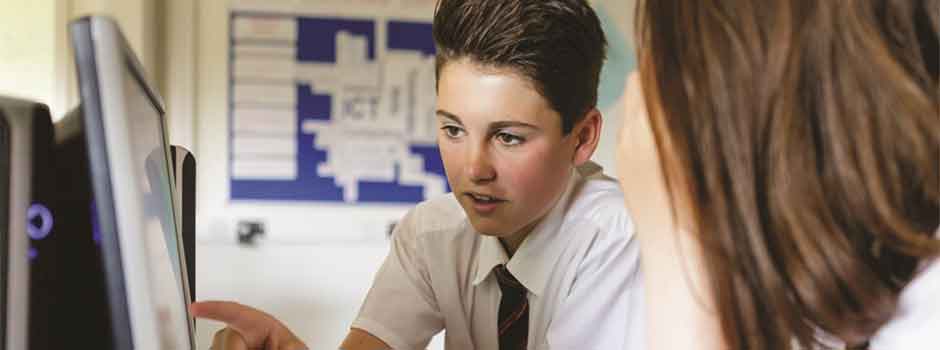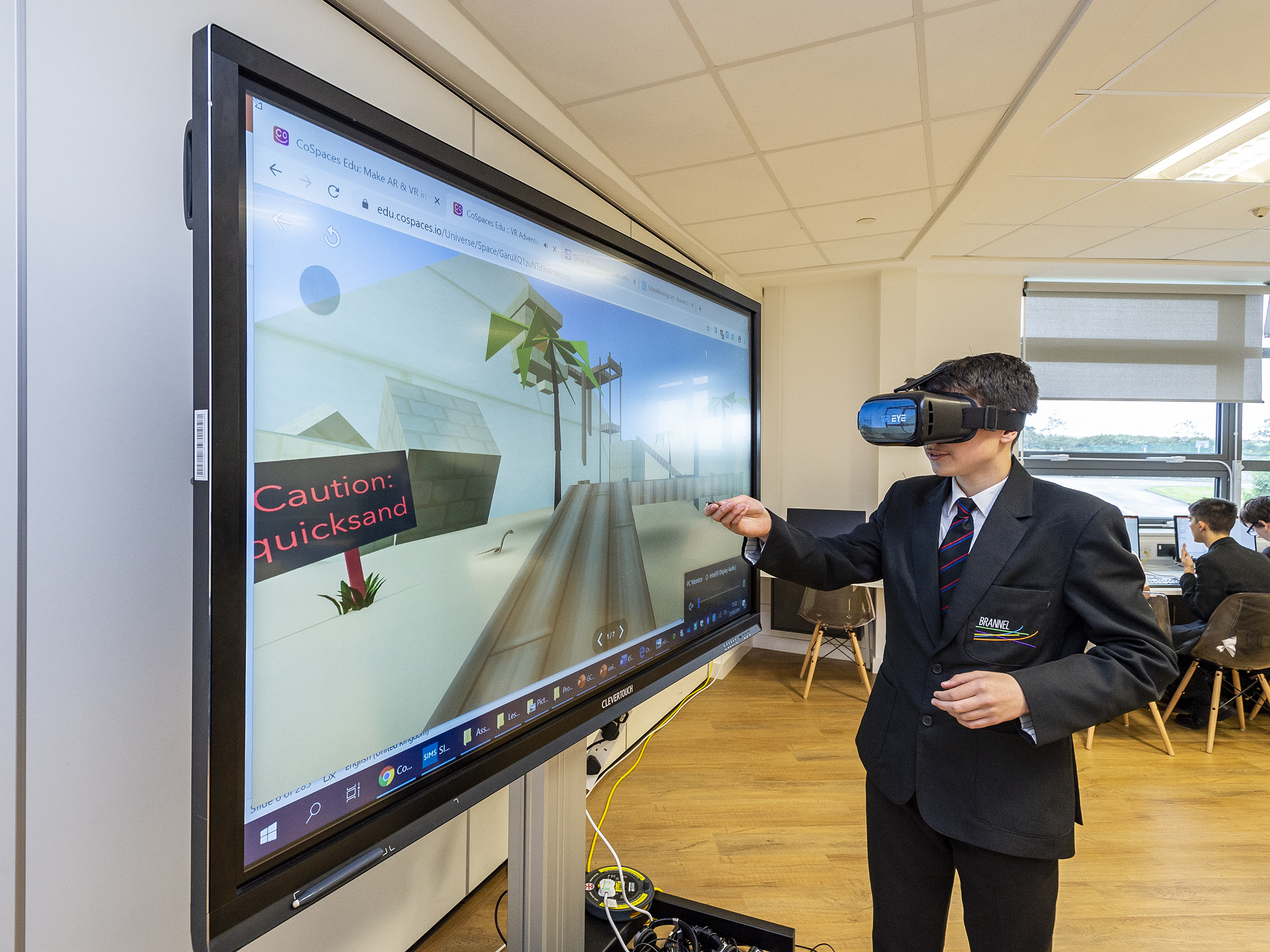Curriculum Content
Year 7 |
· Using ICT · Programming skills – scratch · Programming skills – python · Image editing · Computer Science Theory · Game programming |
Year 8 |
· Modelling and animation · Networks and Web design · Game Programming · Flowcharts and Logic · Python Programming · Scratch Programming |
Year 9 |
· Graphics editing · Computer Science Theory · Mobile Apps · Virtual reality · Microbits, Robots and Programming · iDEA Award |
Year 10 |
GCSE Computer Science Unit 1 Unit 2 · Imedia · Pre-production · Creating Digital images · Creating a multipage website |
Year 11 |
GCSE Computer Science Unit 1 Unit 2 · Imedia · Creating a multipage website · Creating a digital game · Resubmissions |
Curriculum Approach
The KS3 Computing curriculum is in line with the National Curriculum and prepares pupils for taking either or both of the KS4 courses of Computer Science or Imedia
Phase of Education Specific Requirements
Courses available to pupils at key stage 4, including GCSEs:
- GCSE Computer Science
- Cambridge Nationals in Creative Imedia
Find Out More
To find out more about the independent tasks for KS3, please refer to the Realsmart portfolios. Here you will also find more details about end of unit assessments and the criteria that we use to assess student progress.
Alternatively, please contact the head of department or your child’s class teacher.
GCSE Computer Science Specification
Future Careers
Computer Science and Imedia are subjects which are well thought of by colleges and universities and can lead to many, different careers including:
Applications developer, CAD technician, Cyber security analyst, Data analyst, Database administrator, Forensic computer analyst, Game designer, Games developer, Information systems manager, IT consultant, Machine learning engineer, Multimedia programmer, Penetration tester, SEO specialist, Software engineer, Systems analyst, VFX artist, Web designer, Web developer, Digital copywriter, IT sales professional, IT trainer, Nanotechnologist, Network engineer, Social media manager, Supply chain manager, Web content manager, Aerospace and defence, Financial services, Manufacturing, Telecommunications.
These subjects compliment most career paths as nearly every career sector relies on technology, so even if you are thinking of a career in health care, law or finance their will be relevant topics within Computer Science and Imedia.
Computing Learning Journey
We equip students with the skills and experiences during their time at school, to be able to progress to Further and Higher Education and ultimately be able to pursue a career within Computing and Digital Media.
View our Computing Learning Journey.



